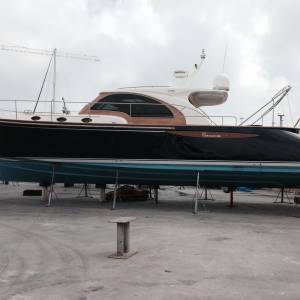
Broker’s Wisdom Part 2 - Advice for purchasers.
In a previous article I focused on the what the vendor needs to do to sell his boat successfully. It’s now my obligation and indeed pleasure to share my thoughts of what an astute purchaser needs to do in order to get himself a “good” deal. I put the word good in quote marks because one should never confuse “good” with best price. I’ll develop this idea in a moment.
The first thing that any purchaser needs to understand is that the broker is employed by and paid for by the vendor. The broker’s obligation is to get a “good” deal for the vendor. The irony in reality is that although the vendor pays for the broker nearly 80% of the broker’s effort will be focused on making it easy for the purchaser to acquire the boat he wants. Purchasers should tap into the expertise and knowledge of the broker, after all it’s free! A broker will happily provide advice on berthing availability, insurance requirements and options, training and local sailing knowledge. Plug into this and listen to the broker because although he works for the vendor his motivation is to sell you a boat that meets your specification and needs. People have big dreams but from a broker’s perspective it also important to assess whether they are being realistic in terms of there ability to turn this dreams into reality. I have lost count of the number of people who come to me wanting to buy yachts to cross the Atlantic or do a circumnavigation. However I can honestly count on the fingers of my hand those who really crossed an ocean.
What is a “good” deal? Funnily enough when considering just price a good deal is one in which both the purchaser and the vendor feel that they could have done a little better. Both parties have gone to their limits. It important to understand where that limit is. Listen to the broker because once that limit is breached trust evaporates and parties get tetchy with each other. It is important to recognise that every deal is a free negotiation. No vendor is obliged to sell at a price he doesn’t like and no purchaser is forced pay more than he wants to. There is more to a good deal than price. This is where the broker will suggest other elements that can be brought into play in any intelligent negotiation. For example for a relatively inexperienced purchaser the promise of a thorough handover from the vendor is invaluable. This is especially true with older boats that may have been modified over time and may have some idiosyncratic features. The transfer of unexpired pre-paid berthing can also be an element to consider. Finally a used boat will be loaded with lots of valuable and often less valuable up highly useful items. Be clear with the vendor what you consider is included in the deal. There are rare but true occurrences of vendors stripping out useful crockery, cutlery and tools which although not expensive to replace increases the hassle factor for the purchaser.
Using the expertise and knowledge of a broker is smart. A good reputable broker will provide a safe environment for the handling of client funds. He will check that the vendor has clear title to the vessel before he even lists the boat for sale. Before completion of any sale the broker will ensure that the vessel is being sold free of debts. If a vessel sails away owing money to the marina the broker will not be welcome there so it is in his interests that each and every transaction is clean and correct. Buying a yacht privately may be a good idea if you already know the yacht and have a good relationship with the owner. If buying from a stranger you should mitigate your risk by using a reputable broker.

